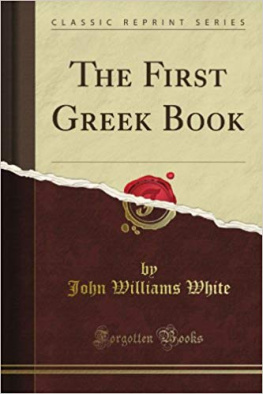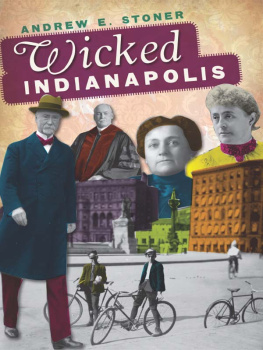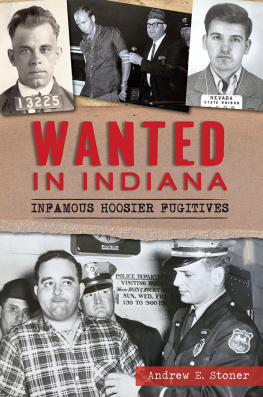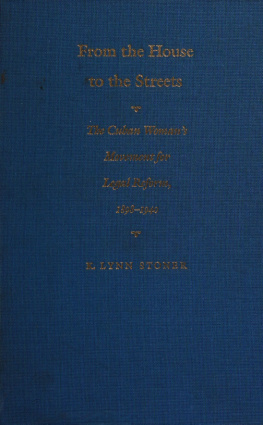IX
The interim chairmanship of the English Department, which Gordon Finch had assumed after the death of Archer Sloane, was renewed year after year, until all the members of the department grew used to a casual anarchy in which somehow classes got scheduled and taught, in which new appointments to the staff were made, in which the trivial departmental details somehow got taken care of, and in which year somehow succeeded year. It was generally understood that a permanent chairman would be appointed as soon as it became possible to make Finch the dean of Arts and Sciences, a position that he held in fact if not in office; Josiah Claremont threatened never to die, though he was seldom seen any longer wandering through the halls.
The members of the department went their ways, taught the classes they had taught the year before, and visited one another's offices in the hours between classes. They met together formally only at the beginning of each semester when Gordon Finch called a perfunctory departmental meeting, and on those occasions when the dean of the Graduate College sent them memos requesting that they give oral and thesis examinations to graduate students who were nearing completion of their work.
Such examinations took up an increasing amount of Stoner's time. To his surprise he began to enjoy a modest popularity as a teacher; he had to turn away students who wanted to get into his graduate seminar on the Latin Tradition and Renaissance Literature, and his undergraduate survey classes were always filled. Several graduate students asked him to direct their theses, and several more asked him to be on their thesis committees.
In the fall of 1931 the seminar was nearly filled even before registration; many students had made arrangements with Stoner at the end of the preceding year or during the summer. A week after the semester started, and after the seminar had held one meeting, a student came to Stoner's office and asked to be let in the class.
Stoner was at his desk with a list of the seminar students before him; he was attempting to decide upon seminar tasks for them, and it was particularly difficult since many were new to him. It was a September afternoon, and he had the window next to his desk open; the front of the great building lay in shadow, so that the green lawn before it showed the precise shape of the building, with its semicircular dome and irregular roofline darkening the green and creeping imperceptibly outward over the campus and beyond. A cool breeze flowed through the window, bringing the crisp redolence of fall.
A knock came; he turned to his opened doorway and said, "Come in."
A figure shuffled out of the darkness of the hall into the light of the room. Stoner blinked sleepily against the dimness, recognizing a student whom he had noticed in the halls but did not know. The young man's left arm hung stiffly at his side, and his left foot dragged as he walked. His face was pale and round, his horn-rimmed eyeglasses were round, and his black thin hair was parted precisely on the side and lay close to the round skull.
"Dr. Stoner?" he asked; his voice was reedy and clipped, and he spoke distinctly.
"Yes," Stoner said. "Won't you have a chair?"
The young man lowered himself into the straight wooden chair beside Stoner's desk; his leg was extended in a straight line, and his left hand, which was permanently twisted into a half-closed fist, rested upon it. He smiled, bobbed his head, and said with a curious air of self-depreciation, "You may not know me, sir; I'm Charles Walker. I'm a second-year Ph.D. candidate; I assist Dr. Lomax."
"Yes, Mr. Walker," Stoner said. "What can I do for you?"
"Well, I'm here to ask a favor, sir." Walker smiled again. "I know your seminar is filled, but I want very much to get in it." He paused and said pointedly, "Dr. Lomax suggested that I talk to you."
"I see," Stoner said. "What's your specialty, Mr. Walker?"
"The Romantic poets," Walker said. "Dr. Lomax will be the director of my dissertation."
Stoner nodded. "How far along are you in your course work?"
"I hope to finish within two years," Walker said.
"Well, that makes it easier," Stoner said. "I offer the seminar every year. It's really so full now that it's hardly a seminar any longer, and one more person would just about finish the job. Why can't you wait until next year if you really want the course?"
Walker's eyes shifted away from him. "Well, frankly," he said and flashed his smile again, "I'm the victim of a misunderstanding. All my own fault, of course. I didn't realize that each Ph.D. Student has to have at least four graduate seminars to get his degree, and I didn't take any at all last year. And as you know, they don't allow you to take more than one each semester. So if I'm to graduate in two years, I have to have one this semester."
Stoner sighed. "I see. So you don't really have a very special interest in the influence of the Latin tradition?"
"Oh, indeed I do, sir. Indeed I do. It will be most helpful in my dissertation."
"Mr. Walker, you should know this is a rather specialized class, and I don't encourage people to enter it unless they have a particular interest."
"Yes, sir," Walker said. "I assure you that I do have a particular interest."
Stoner nodded. "How is your Latin?"
Walker bobbed his head. "Oh, it's fine, sir. I haven't taken my Latin exam yet, but I read it very well."
"Do you have French or German?"
"Oh, yes, sir. Again, I haven't taken the exams yet; I thought I'd get them all out of the way at the same time, at the end of this year. But I read them both very well." Walker paused, then added, "Dr. Lomax said he thought I would surely be able to do the work in the seminar."
Stoner sighed. "Very well," he said. "Much of the reading will be in Latin, a little in French and German, though you might be able to get by without those. I'll give you a reading list, and we'll talk about your seminar topic next Wednesday afternoon."
Walker thanked him effusively and arose from his chair with some difficulty. "I'll get right on to the reading," he said. "I'm sure you won't regret letting me in your class, sir."
Stoner looked at him with faint surprise. "The question had not occurred to me, Mr. Walker," he said dryly. "I'll see you on Wednesday."
The seminar was held in a small basement room in the south wing of Jesse Hall. A dank but not unpleasant odor seeped from the cement walls, and feet shuffled in hollow whispers upon the bare cement floor. A single light hung from the ceiling in the center of the room and shone downward, so that those seated at desk-top chairs in the center of the room rested in a splash of brightness; but the walls were a dim gray and the corners were almost black, as if the smooth unpainted cement sucked in the light that streamed from the ceiling.
On that second Wednesday of the seminar William Stoner came into the room a few minutes late; he spoke to the students and began to arrange his books and papers on the small stained-oak desk that stood squatiy before the center of a blackboard wall. He glanced at the small group scattered about the room. Some of them he knew; two of the men were Ph.D. candidates whose work he was directing; four others were M.A. students in the department who had done undergraduate work with him; of the remaining students, three were candidates for advanced degrees in modern language, one was a philosophy student doing his dissertation on the Scholastics, one was a woman of advanced middle age, a high-school teacher trying to get an M.A. during her sabbatical, and the last was a dark-haired young woman, a new instructor in the department, who had taken a job for two years while she completed a dissertation she had begun after finishing her course work at an eastern university. She had asked Stoner if she might audit the seminar, and he had agreed that she might. Charles Walker was not among the group. Stoner waited a few moments more, shuffling his papers; then he cleared his throat and began the class.
Next page














